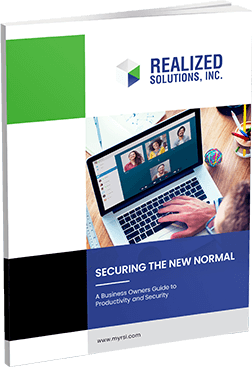Are Your Zoom Meetings Secure?
Zoom has become extremely popular as a video conferencing solution during the COVID-19 pandemic- both for users, and as a target for cybercriminals. Are you sure your Zoom meetings are properly secured against intruders?
Unfortunately, when a technology becomes this popular this quickly, it attracts attention from cybercriminals looking to exploit unaware, new users. This uptick in activity has led to a number of ongoing security concerns:
- Zoom-Bombing: Users have been reporting an increased rate of something called “Zoom-bombing”, which occurs when someone intrudes on your meeting to cause disruptions or eavesdrop on your conversation.
- Stolen Credentials: Cyber risk assessment firm Cyble has discovered more than half a million stolen Zoom credentials being sold on the Dark Web for almost nothing. The stolen info included usernames, passwords, meeting IDs, and host keys.
Will Zoom Always Be A Risk?
The good news is that Zoom is busy working on a security update that will enhance its cybersecurity capabilities. These updates will include:
- AES 256-bit encryption for increased privacy protection
- Improved user interface, allowing for easier access to security settings
- Greater control given to users as to where their data is routed
- More complex cloud recording passwords
These updates are slated to roll out over the next few weeks – but that doesn’t mean your Zoom meetings have to stay unsecured in the meantime.
4 Zoom Cybersecurity Tips To Keep Your Meetings Safe
- Don’t Share Meeting Info On Social Media. It may be easier to get the word out about your next big meeting by using social media, but without the right security settings in place, anyone can get that info. If you need to share an invite, do it directly over email.
- Set A Password For Your Meeting. In Zoom’s settings, you can enable a password requirement for all instant meetings.
- Enable Default Encryption. In the advanced settings, make sure to enable H.323 and SIP Encryption.
- Verify Links. Hackers have been acquiring Zoom-based domain names to trick users into clicking the wrong meeting invites. All legitimate links will have”zoom.us” in them.
If you’re worried about your work-from-home technologies or cybersecurity, then don’t try to handle it all on your own. The Realized Solutions team will help you evaluate your remote capabilities as a whole to make sure you’re not missing out on useful solutions or taking on any unnecessary risks.




